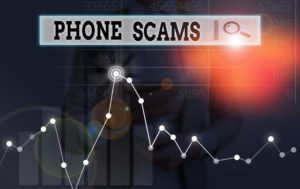
Covid-19 Scams Are a New Form of Contamination
Here at AirMD, a science-backed environmental testing company, we have advanced technology that can efficiently test indoor air quality and test water quality as well. We have tests for asbestos and tests for formaldehyde. We even have equipment that does testing for mold.
What we wish we had was a test that would reveal scammers and other criminals who set out to prey on people who are suffering, like those who have developed and are implementing Covid-19 scams.
While there are countless stories of people who have stepped up help to help others and to make a positive contribution to their communities, there are also stories emerging of people who see the current pandemic as an opportunity to take advantage of people who are already facing hardships and challenges.
Protect Yourself from COVID-19 Scams
Forewarned is forearmed, as they say. So we wanted to share some tips to avoid Covid-19 scams put out by the Federal Communications Commission (FCC).
Apparently, scammers are calling people with a number of different scenarios designed to get you to part with either your money or your personal information. Some of those reported include:
- Phone calls and text messages supposedly coming from the World Health Organization (the WHO), asking you to provide account information or money.
- Robocalls claiming to send out free virus test kits to those at high-risk of contracting a serious form of Covid-19. r payment over the phone.
- The FCC says another “robocall message purports to be from the U.S. Department of Health, warning of an outbreak ‘in your area.’ The message recommends getting a vaccine and offers to connect you to a ‘health advisor.’”
To protect yourself from these and many other scams, the FCC offers the following tips:
- Never share your personal or financial information via email, text messages, or over the phone.
- Scammers often spoof phone numbers to trick you into answering your phone. Government agencies will never call you to ask for personal information or money.
- Always do a little research on a charity to make sure they are legitimate before giving them any money.
You can find a lot of good information online about current scams. A good place to start is the FCC Consumer Help Center and the FCC Scam Glossary.
Unfortunately, the environmental testing pros at AirMD can’t run a test to detect the presence of scams, but if there is anything else we can do to help ensure the health and safety of your family or small business, we hope you will contact us.







